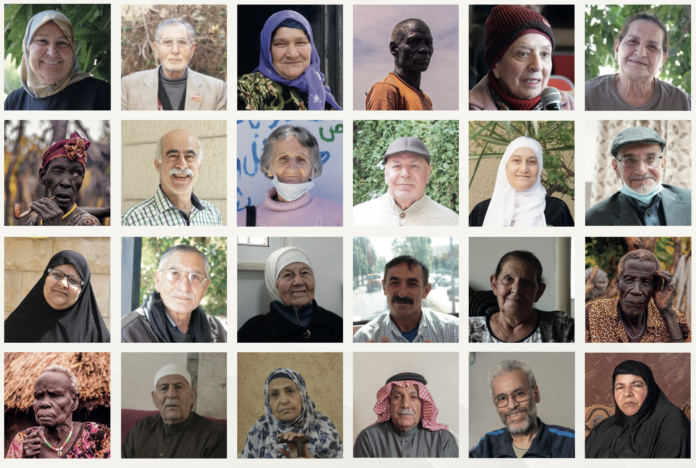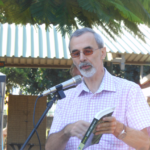The Arab Plan of Action on Ageing (APA2002), the Madrid International Plan of Action on Ageing (MIPAA2002) and the Arab Regional Ageing Strategy (2019 – 2029) constitute appropriate frameworks to encourage Arab States to develop and implement national strategies and policies targeting the wellbeing and rights of older people. In 2020, the UNFPA Arab States Regional Office (ASRO) collaborated with HelpAge International to review six national ageing strategies and age-related policies in terms of their alignment with human rights standards. This review was published in a report entitled ‘The Rights of Older Persons – A review of national ageing strategies in the Arab region’.
The analysis found that there was much in the six strategies that were reviewed that would advance older person’s enjoyment of their rights. However significant gaps were also noted. While they addressed some elements of the rights concerned, they did not address all of them. Another gap was the range of rights included, which were limited to social, economic and cultural rights but did not pay adequate attention to civil and political rights, including the right to equality and non-discrimination, autonomy and access to justice.
In order to encourage and support Arab States to better align their national ageing strategies and policies with a comprehensive human rights approach, UNFPA ASRO and HelpAge International have collaborated again in the production of this policy Guide entitled ‘The Right to Dignified Ageing – A Guide to Establishing Rights-Based Policies for Older Persons in the Arab Region.’ Using practical examples and a wide range of case studies it provides a practical tool for policymakers to formulate new, and revise existing, strategies on ageing, to better align them with the human rights standards formulated in the APA2002, MIPAA 2002 and Arab Regional Ageing Strategy 2019 – 2029 initiatives. Throughout the Guide there are numerous references and examples around the inclusion and participation of older people in the process of policy formulation, review and monitoring, in line with a vision shared by UNFPA ASRO and HelpAge International that those older people most impacted by ageing policies and strategies should have a role to play in developing them.
We encourage countries in the region to use this Guide as a resource to either formulate, redesign or review their national ageing strategies and policies for older persons in line with relevant human rights standards and principles. At the same time, we would welcome any feedback and sharing of experiences derived from such an exercise, so that we can continue to develop the Guide in light of its practical implementation.
For more information please contact:
Chris McIvor, Regional Representative for HelpAge International (Middle East / Eurasia) at Chris.mcivor@chrismcivor
Read the guide
HRBA-policies-Chris Mcivor is currently working as the Regional Representative for HelpAge International, covering the Middle East, and Eurasia region. He has a mix of management, operational, advocacy, fundraising, and partnership building responsibilities, and with the global team supports country level work in Jordan, Lebanon, Ukraine and Moldova. He also supports network member led programmes in Syria, Gaza, Yemen, Albania, and Armenia among others, particularly in relation to humanitarian crises, including the recent Covid 19 pandemic. He has a keen interest in advancing the Voice of older people across humanitarian and development programmes, and promoting their inclusion and participation in matters that affect them.
Prior to Help Age International he worked for Save the Children for 28 years in a variety of senior management roles. His assignments included country directorships in Morocco, the Caribbean (covering Cuba, Haiti, and Jamaica), Zimbabwe, Mozambique, Egypt, and Sri Lanka. He was also Deputy Regional Director for Save the Children in Southern Africa, with a key focus on improving programming quality and design as well as promoting documentation of programme experience for purposes of national and international advocacy. He has extensive experience of overseeing humanitarian programmes relating to civil conflict and natural disasters, including work in Haiti, Zimbabwe, Mozambique, Egypt, and Sri Lanka. He is the author of several books on child participation, children on the move, environmental issues including climate change and humanitarian accountability as well as three autobiographical works relating to his travels and experiences in Sudan, Zimbabwe, Morocco and the Caribbean



